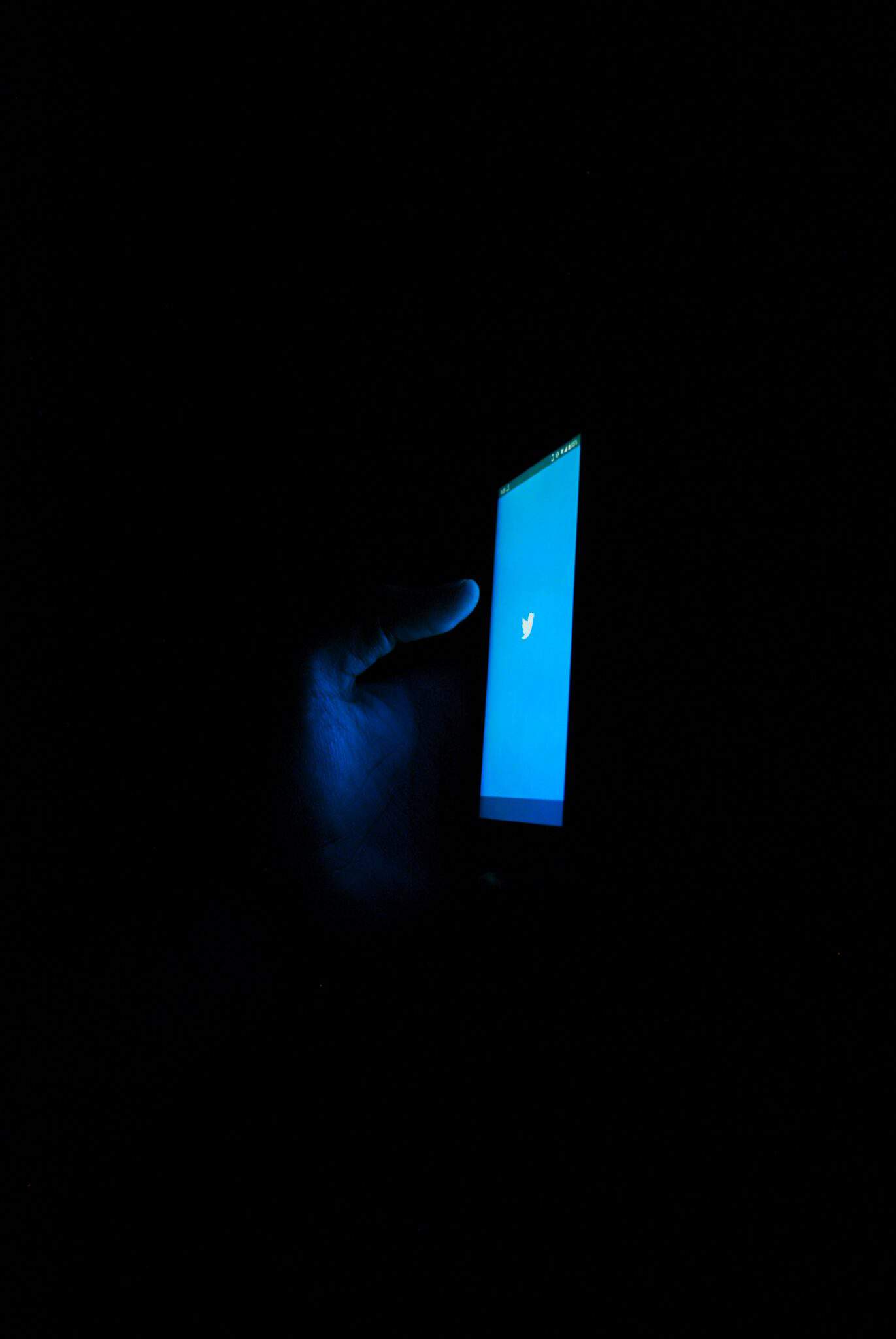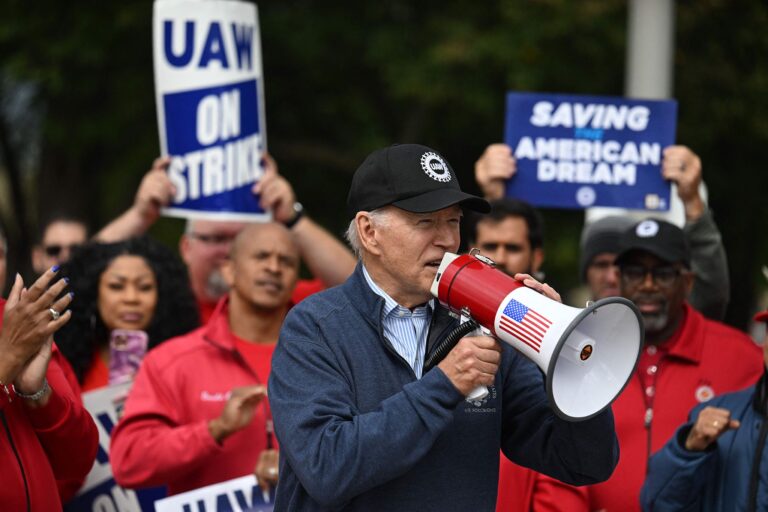
Andrew Strom has been a union lawyer for more than 25 years. He is an Associate General Counsel of Service Employees International Union, Local 32BJ in New York, NY. He is the author of Caught in a Vicious Cycle: A Weak Labor Movement Emboldens the Ruling Class, 16 U.St. Thomas L.J. 19 (2019); Boeing and the NLRB: A Sixty-Four Year-old Time Bomb Explodes, 68 National Lawyers Guild Review 109 (2011); and Rethinking the NLRB’s Approach to Union Recognition Agreements, 15 Berkeley J. Emp. &; Lab. L. 50 (1994), and has written for Dissent and Dollars and Sense. He also taught advanced legal writing at Fordham Law School. He received his J.D. magna cum laude from Harvard Law School. The views he expresses on this blog are his personal views, and should not be attributed to SEIU Local 32BJ.
Assume you work at a media company, and workers at a rival media company go on strike. Your boss responds by tweeting, “FYI @[your company] first one of you tries to unionize I swear I’ll send you back to the salt mine.” That’s what happened in June 2019 when workers at Vox Media walked off the job, and Ben Domenech, the publisher of the online magazine, The Federalist, posted that tweet on his personal Twitter account. Domenech’s threat was so brazen, that even the Trump appointees on the National Labor Relations Board agreed it was an illegal threat. But, to three Republican judges on the Third Circuit Court of Appeals, it’s all a big joke.
FDRLST Media, the company that publishes The Federalist, first argued that the Board should not have even considered the charge based on Domenech’s tweet because the charge was not filed by a FDRLST Media employee. Two of three judges on the panel recognized that this argument was foreclosed by both the plain language of the statute and decades of caselaw. But, not surprisingly, a Trump appointee, Paul Brown Matey, wrote separately to say that he found this argument convincing. On the merits, the judges started with the shocking assertion that “this Court has never affirmed a finding of an unfair labor practice based on employer speech alone absent any indicia of labor friction.” The panel is apparently suggesting that if the FDRLST workers weren’t actually trying to unionize, then a threat to fire them for doing so can’t be coercive. I haven’t canvassed every NLRB case the Third Circuit has ever heard, but other circuits routinely find violations without “indicia of labor friction,” and with good reason. If an employee handbook informs workers that they may not discuss their wages, that’s illegal even without evidence that workers were getting together to compare salaries. And, if a company announces to job applicants that union members are not welcome, it shouldn’t matter whether any union members had actually tried to apply. But, these judges seem to be saying that an employer is free to threaten its workers that they better not organize as long it does so before it is aware of any actual organizing activity.
After paying lip service to the notion that the NLRB might have more competence to judge the potential impact of Domenech’s tweet on employees, the panel went on to second-guess the Board due to the NLRB’s alleged failure to consider the context of Domenech’s tweet. And what was that “context?” To these Republican judges, the comments weren’t coercive because they were posted on Twitter, a platform that “encourages users to express opinions in exaggerated or sarcastic terms.” This would be a convincing argument if the Labor Board had concluded that Domenech was literally threatening to send workers to work in salt mines. But, while the threat may have been exaggerated for effect, there’s no interpretation where sending an employee to the “salt mine” is desirable. The judges’ other rationale is equally unconvincing. They assert that a worker wouldn’t have viewed the threat as coercive because it was broadcast to all 80,000 of Domenech’s Twitter followers, rather than being delivered only to the inboxes of his six employees. This is basically a claim that if Domenech meant to threaten his workers, he wouldn’t have done it so publicly. But maybe publicizing the threat just makes it that much more effective. What better way to signal to employees that the law will not protect them than to announce a threat out in the open, and essentially dare them to do something about it?
Mostly, the judges made it clear that they thought Domenech’s tweet was funny: “The image evoked — that of writers tapping away on laptops in dimly lit mineshafts alongside salt deposits and workers swinging pickaxes — is as bizarre as it is comical.” Of course, you don’t need to be a Freudian to know that jokes often contain not-so-hidden meanings. If I tell my daughter that if she’s not home by midnight, I’m going to lock her in her room until she turns eighteen, she knows that I’m making a bad joke, but she also knows that there will be serious consequences if she stays out too late.
It’s true that in evaluating whether words constitute a threat, context matters. But here, Domenech utterly failed to offer an innocent interpretation of his “joke.” These Republican judges say that workers wouldn’t view Domenech’s tweet as a threat, but rather they would merely see it as “commentary on a contemporary newsworthy and controversial topic.” But, why can’t it be both? It can be hard to read tone on social media, so an attempt at a sarcastic takedown may be misinterpreted as sincere praise. But, that’s obviously not the case here. It’s not as though Domenech was trying to encourage his employees to unionize.
The lesson for bosses here is clear: if you want to get away with threatening your employees, do it in the most public way possible. As for these Republican appointees on the bench, I’d like to send them all to the salt mines. Just kidding.










Daily News & Commentary
Start your day with our roundup of the latest labor developments. See all
April 24
Workers in Montreal organize the first Amazon warehouse union in Canada and Fordham Graduate Student Workers reach a tentative agreement with the university.
April 23
Supreme Court hears cases about 10(j) injunctions and forced arbitration; workers increasingly strike before earning first union contract
April 22
DOL and EEOC beat the buzzer; Striking journalists get big NLRB news
April 21
Historic unionization at Volkswagen's Chattanooga plant; DOL cracks down on child labor; NY passes tax credit for journalists' salaries.
April 19
Alabama and Louisiana advance anti-worker legislation; Mercedes workers in Alabama set election date; VW Chattanooga election concludes today.
April 18
Disneyland performers file petition for unionization and union elections begin at Volkswagen plant in Tennessee.